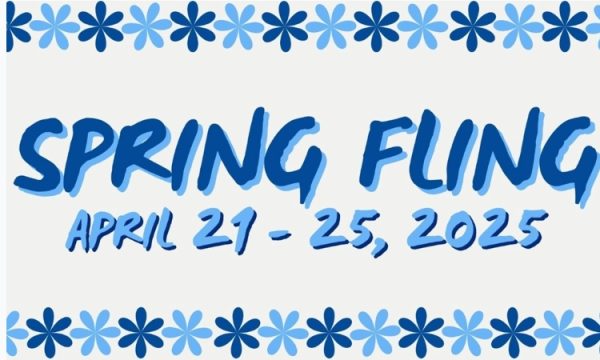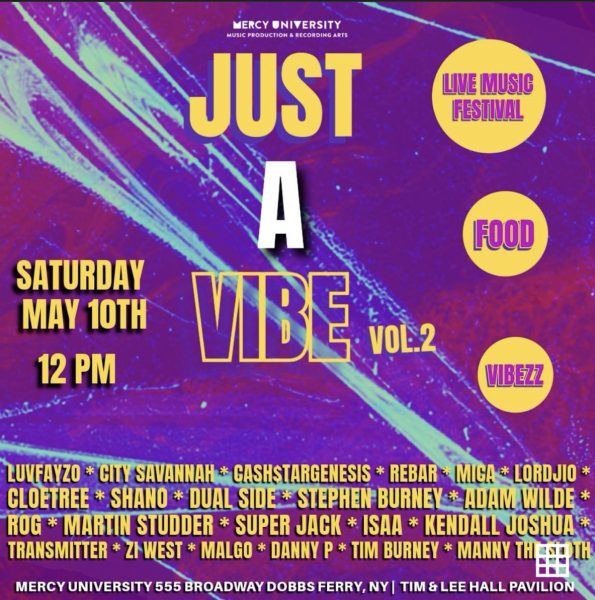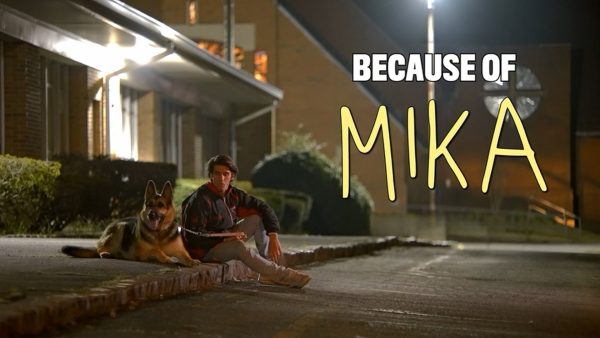Masters of Film: Orson Welles
Ryan Coogler’s “Black Panther” (2016) was hailed as a landmark film in its thematic, visual, and artistic presentation of African culture. The film, the first solo film for Marvel’s African Prince Avenger, was a box office, critical, and pop culture success. It was one of few films within the comic book genre to be given universal acclaim, and one of the first for Marvel to do so. Previous comic book films that received such universal critical acclaim have usually been reserved for Marvel’s rival, DC comics, with their films such as “Wonder Woman,” and “The Dark Knight,” which featured a legendary performance by Heath Ledger as The Joker. “Black Panther” was one of Marvel’s first films to reach this pinnacle. The stylized and creative film was able to balance many issues from race and colonialism all while still maintaining its connection to its comic book roots and the overall arc that the comic giant has been meticulously building since the original film in the “Marvel Cinematic Universe” in “Iron Man” (2008). However, the film wasn’t the beneficiary of unanimous critical reception. Christopher Lebron of the Boston Review did not see the film in the same vein. Lebron argues that the film itself is racist due to its portrayal of black American men, noting that the film goes to great lengths to showcase black woman and Africans as a whole in a much greater light than black American men. While wholly opinion based, and while having some merit behind the claims, there are significant areas in which this premise doesn’t completely hold up to Lebron’s assertions.
Lebron argues that the film is in a sense, racist, due to the film’s treatment of its villain, Eric Killmonger. Firstly, while the idea is essentially still plausible because everything about Killmonger is that of an American because he was raised as one, therefore having the experience of one, he is ultimately Wakandan. Lebron argues that the film fails as a truly revolutionary film due to its failure in its treatment of Killmonger, that the film makes the villain a black American man when it supposedly is a commentary on colonialism and racism. While this does bear weight upon first glance when one digs deeper this criticism is somewhat of a shallow one. Yes, Killmonger is essentially American because he was born, raised, and experienced life and the harshness of being black in America as an American. His speech, mannerisms, and vocabulary are all vastly different than his Wakandan brethren. However, he is still a Wakandan, and not just a Wakandan, but a member of the royal family. He is the cousin of the king, thus making the conflict between them more of a conflict rooted in Wakanda, as opposed to a concept of Wakanda vs. America. This is even more indicative as the whole reason the conflict arises is that T’Challa’s father, the former king, killed his uncle after finding out that he had betrayed Wakanda. There is no direct insistence that the issue between T’Challa and Killmonger are because he is from America. Killmonger’s motives are also driven by racial, social, and historical reasoning’s in his quest to ascend to the Wakandan throne, which was specifically influenced by living in America. Lebron’s argument suggests that because Killmonger is the antagonist, an antagonist from America, this is effectively a form of racism, because, once again, black American men have been marginalized. However, a major aspect that Lebron forgets to attribute in his criticism is that a major plot point in the film is that Wakanda has chosen to separate itself from not only the world but from Africa as well. It is not as if Wakanda had been united with the rest of their African neighbors. The vibranium was a unique element to Wakanda, therefore they alone are the benefactors. There was no idea of unison within the African continent as a whole. Had this been the case, and they shunned Killmonger still, that would have been more damning. However, Wakanda, like any other nation, showcases its own prejudices towards non-Wakandans. This is even evident within Wakanda itself, as T’Challa and the rest are at odds with the Jabari tribe, a much more warlike tribe. What this demonstrates is that doesn’t mean that just because he is an American he is somehow lesser and prone to be the villain in this scenario. The Wakandan’s disposition to show their own forms of bias and prejudice even towards tribes within their own borders suggest that it is much more related to a mindset, or proximity to the ideals of Wakandan’s then it is because he is a black American. In reality, it is much more political, the idea that as an American, or any other nationality, Killmonger is like his CIA counterpart, Everett Ross, in that their ideas for vibranium might be less noble or more politically driven than those in Wakanda. There is also a degree of slight arrogance that the film places on Wakanda for this. The film makes it that the Wakandans can so easily refuse to use their vibranium in a way that Killmonger wishes because they have separate themselves, their pain and struggles simply don’t compare to that of their black peers in America, or African neighbors. They don’t harbor the same feelings of anger and resentment to the degree that someone from where Killmonger came from harbors. In that sense, the film is overtly suggesting that Killmonger is not “bad guy,” rather he is a victim of being human, suffering prejudices and being hardened and changed by them, while the Wakandan’s lived isolated in their own bubble of seclusion. If anything the film is criticizing them for it.
Secondly, Lebron suggests that the film ultimately chooses to make a white character, Everett Ross, the hero in the end. Again, the issue is entirely how one chooses to perceive it. There is no true hero in the film. There are several heroes who all contribute in a way to the final result. Everett Ross is merely just one of many. Ross merely has the chance to be one of the hero’s just because he has a particular skill that nobody else at the moment was capable of doing. Ross, a former pilot, was the only one among them who could have filled that role. In order for him to be considered the “hero,” it must be established that it was his role that had a significantly more impactful result than everyone else. This is not the case, there is no assertion that anyone’s role was more important than the other, merely they all played a part in the outcome. Ross’s role was to shoot down the ships carrying vibranum weapons to the rest of the world. Shuri and Nakia fought with Killmonger while T’Challa and Okoye battled W’Kabi and his forces. Eventually, Okoye was able to subdue W’Kabi along with the help of M’Baku and the Jabari allowing T’Challa to have his climatic battle with Killmonger. There is nothing overtly more crucial in the role that Ross play in comparison to everyone else’s roles. In reality, Ross is the only one of the protagonist’s who is shown in a manner that suggests that his competence may be in question. For the majority of the film, Ross is not shown in a manner that suggests anything about him to where he is anything more than just another CIA agent. He, like other government officials, is seen as somewhat clueless on many things and overly confident. In reality, the culmination is suggestive that Ross is just heroic and a great pilot, not that his presence offered a seismically different outcome. Ross isn’t even a character who is in the most danger in comparison. Shuri, Nakia, Okoye, and T’Challa all are in significantly more danger than he. Ross’s one danger was from a Wakandan ship that was firing on the shields that protected Ross while he flew the simulator. Physically, Ross wasn’t even occupying the very crafts that he piloted, significantly lessening the danger he faced. Ross is ultimately successful in his role, where he was tasked with destroying the cargo ships. However, the one aspect of the danger he faced never really becomes a factor as Ross is able to destroy the last ship and escape the room long before the ship is able to destroy the shields to the room where he was piloting the devices. These aspects make Lebron’s arguments difficult to agree with. The film went to many lengths to show that Ross was in the least amount of danger, to which he was able to escape rather easily. Aside from that, the film portrays that T’Challa, Shuri, Nakia, and Okoye were in much more dangerous situations and that upon Ross’s completion of his task, it was merely a consummation prize for being competent enough to complete his assignment rather than just being another suit and tie that is rescued by the true hero. For these reasons, it is overtly obvious that Ross in no way is the true hero of the film, in reality, he isn’t even one of the four most important.
Lastly, another reason as to why “Black Panther” is not a racist film as Christopher Lebron suggests, is because of the character arc for both the two characters in question, Killmonger and Ross. Killmonger, who essentially witnesses the death of his own father, eventually joins the military and becomes as dangerous and effective in combat as his fellow Wakandan brethren. A crucial aspect to Killmonger in his motivations is that he is not truly a villain in many facets. Killmonger is ultimately a victim of a difficult childhood surrounded by hate and bias. Killmonger is essentially a severely misguided and angry individual, who isn’t wrong for feeling the way he does. In this sense, it is difficult to point to the film as being racist when it is overtly saying that the main villain is really an individual who experienced terrible hardship and simply has chosen the wrong pathway to deal with it. Killmonger, lacking a figure for guidance after his father is killed, simply chooses to embrace the same anger and hatred that envelops him now that was shown to him as a child. He is also someone who was abandoned by his own people after the king feared to allow the reality the kingdom was betrayed by the king’s own brother would undermine his rule. The film’s conclusion also argues with the idea that the film is racist because the film ultimately acknowledges that there were aspects that he was, in fact, right about. Killmonger was driven by his anger and hatred into wanting to unite his people around the world as one, something T’Challa and Wakanda did not feel mutually about. In the end, however, T’Challa realizes that Killmonger, while expressing it in a way that wasn’t right, was ultimately right in that Wakanda needed to use its resources, vibranium, for those who were suffering and in need. Wakanda needed to use it to empower marginalized people. This is hardly a message that was sent by a villain that would suggest the film had a racist overtone towards him. In the end, the villain, through his faults was able to grow albeit briefly. However, more importantly, Killmonger was able to allow T’Challa to grow and improve the kingdom, and the world. For Killmonger, even though he was broken beyond repair mentally, he was finally able to see the beauty in the home that had abandoned him when T’Challa takes his mortally wounded self to the cliffside, where he was able to view the sunset

Michael Dunnings, otherwise known by the Hungarian equivalent "Miska", is a native of Dobbs Ferry and a senior studying Journalism at Mercy College. Michael...







